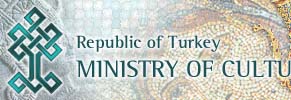Turkish music
online favorites | caveats | commentary | navigation
|
|
Maybe you're teaching a course with West Asian or
Muslim content but your library is skimpy on music from Turkey. Or maybe
you'd just enjoy exploring Turkish music. With some pointers, you might
quickly find what you want on the Turkish Ministry of Culture website.
Once you've heard music you want to keep, what next? Tips on
capturing and using audio files from
websites might be helpful, assuming that you can't buy the music
commercially (Kalan Music
is credited with supplying some examples). I was surprised at the breadth and depth of the musical examples. Numerous regional examples. Plenty of traditional classical examples. But who knew about barrel-organ recordings? Ladino songs? Rebetika? In retrospect, why not, and it's great to have so many in one place. From an ethnomusicology point of view, the examples are uneven and the titles are sometimes misleading. But there are many excellent recordings here. Some of the commentary is not bad either. Religious (mosque and Sufi music), especially vocal pieces by Kâni Karaca, the superb singer with the sonorous, god-like voice. Skimpy offerings no doubt reflect the secularist government (at the time of this review) fear of promoting Islam. Ottoman (traditional classical music), especially a taksim instrumental improvisation by Tanburi Cemil Bey, for his much-admired artistry and structure; gazel vocal improvisations by Hafız Kemal, for his virtuosity and expressivity; a composed solo sung by Recep Birgit, for his elegant and restrained style; and funky gypsy (non-classical) music by composer-clarinetist Şukru Tünar, especially "Hicaz Raks."
Janissary (Mehter) Etc.
Online commentary Navigation
I congratulate the Ministry on this substantial accomplishment and look
forward to their site inspiring other countries to do the same. In its eighth year of publication, EOL is only now offering its
first web review. For shame! Web reviews of online journals, folklife
festivals, scholarly conferences, and other
neglected venues are long overdue in our field. Contact EOL
Review Editor with suggestions. Ask Peter
Manuel and other editors when their journals will begin reviewing
websites. Karl Signell released 11 December 2002 |

